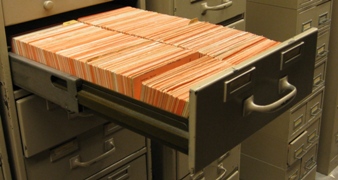Funeral records are documents kept by funeral homes detailing the funeral services that were registered with them. When it comes to conducting research on the death of an individual, death records are often the first recourse while funeral documents are often (unjustly) overlooked.
One of the primary reasons why funeral records are ignored is that, unlike death records, they are not considered public records. Funeral homes are not required by law to release funeral documents unless there is just cause. But as of late, more funeral homes are allowing the general public to request for this information, provided that the name of the deceased and the date of death are provided accurately by the requesting party.
Since the funeral home director is tasked with the responsibility of filling out the death certificate, the latter is also part of the funeral records they keep at most funeral homes. Aside from the date of birth and death, other information that you can find in the death certificate includes the name of the spouse, name of parents, the place of residence at death and the name and location of the cemetery.
On the actual funeral records, one can find a list of surviving family members of the individual who passed away. Sometimes, even the names and addresses of the in-laws and grandchildren are included on this list, since this will be needed for placing obituaries in newspapers.
Although not often the case, there are instances when funeral documents also reveal the deceased person's last will or testament, birth certificate, insurance policy and military record. These information are of course especially relevant for those trying to trace their lineage, track down ancestors and uncover their own family history.

Funeral Records Go 'Live' Online
Due to the sheer volume of funeral records, many mortuary facilities have chosen to digitize all their records and offer them online. Being able to access funeral documents online is advantageous for mortuary facilities since this saves them the additional cost of having to maintain a separate physical archive, sometimes even employing the services of a third party record keeping company.
For people wishing to acquire copies of funeral records, retrieving them online preserves these records for posterity. Digitized copies mean that the risk of these records getting lost, stolen or damaged is significantly reduced and are more likely to be able to withstand the test of time.
One caveat for anyone accessing funeral records is that these records may not be entirely accurate since most of the information is supplied by the surviving family members and then compiled by the funeral director. As such, any information that you learn from funeral documents has to be double checked against other sources of data before they can be deemed as conclusive.
The registrar of vital statistics, the county of death and cemeteries may also have some related records that can be utilized for research purposes and serve as excellent supporting documents for funeral records.
Courtesy of Dr. Amit Mehta









Join the Discussion
Type out your comment here:
You must be logged in to post a comment.